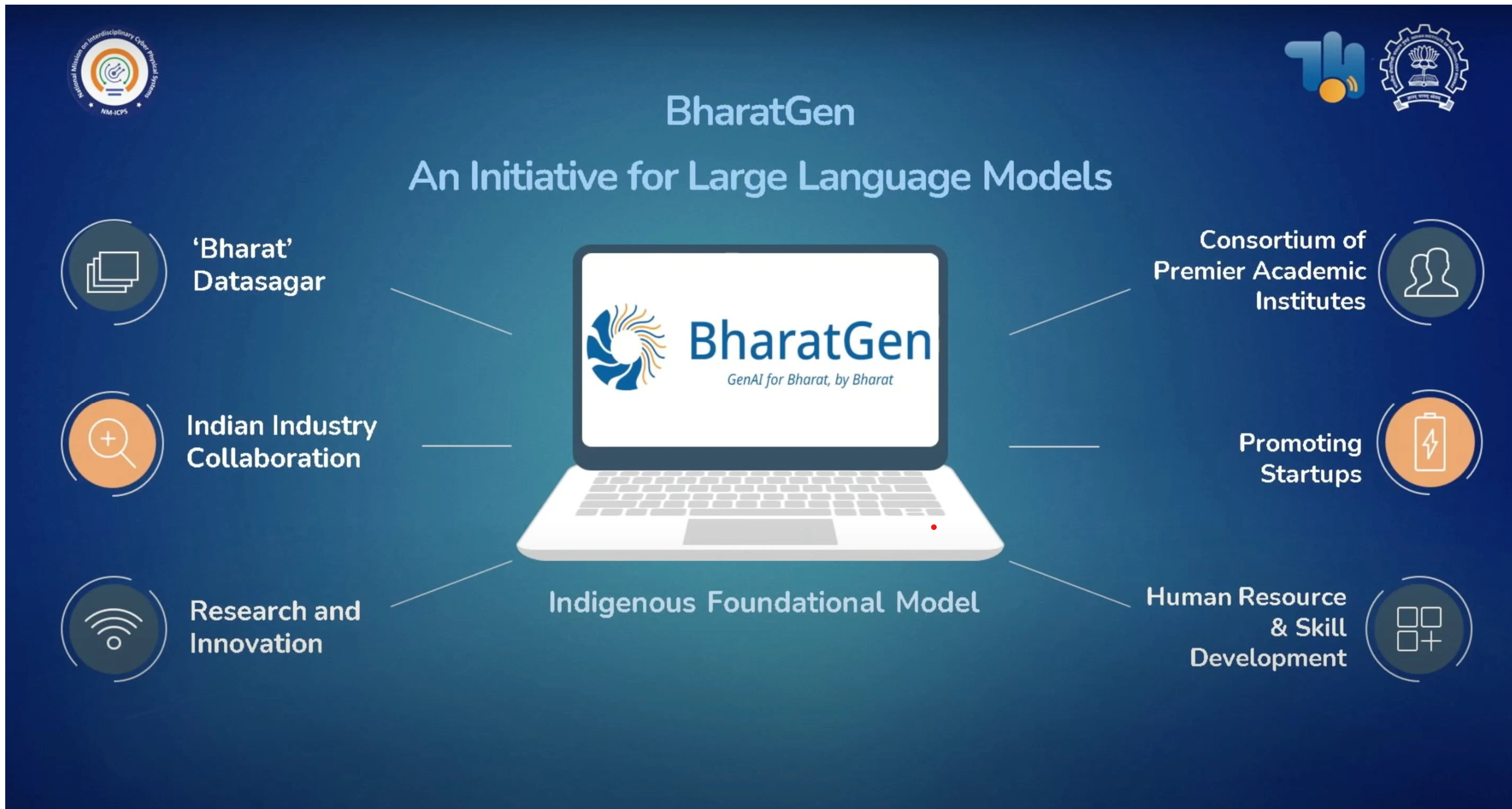BharatGen Initiative

- 01 Oct 2024
In News:
BharatGen is a pioneering generative AI initiative launched in New Delhi, aimed at revolutionizing public service delivery and enhancing citizen engagement, with Dr. Jitendra Singh, Union Minister of State, in virtual attendance.
- Significance
- Represents India's commitment to advancing homegrown technologies.
- Positions India as a global leader in generative AI, similar to achievements with UPI and other innovations.
- Marks the world's first government-funded Multimodal Large Language Model project focusing on Indian languages.
- Leadership and Implementation
- Spearheaded by IIT Bombay under the National Mission on Interdisciplinary Cyber-Physical Systems (NM-ICPS).
- Collaboration with the TIH Foundation for IoT and various academic partners, including IITs and IIMs.
- Key figures involved include Prof. Shireesh Kedare (Director, IIT Bombay) and Prof. Ganesh Ramakrishnan (consortium leader).
- Core Objectives
- Deliver generative AI models as a public good, prioritizing socio-cultural and linguistic diversity.
- Address broader needs such as social equity, cultural preservation, and inclusivity.
- Make AI accessible for industrial, commercial, and national priorities.
- Key Features
- Multilingual and Multimodal Models: Capable of handling text and speech in multiple languages.
- Bhartiya Data Sets: Focus on India-centric data collection and training.
- Open-Source Platform: Promotes collaboration and innovation in AI research.
- Ecosystem Development: Fosters a robust AI research community.
- Project Timeline and Impact
- Expected completion in two years, with benefits for government, private, educational, and research institutions.
- Ensures coverage of India’s diverse linguistic landscape through multilingual datasets.
- Emphasis on data sovereignty to strengthen control over digital resources.
- Alignment with National Goals
- Supports the Atmanirbhar Bharat vision by reducing reliance on foreign technologies.
- Aims to strengthen the domestic AI ecosystem for startups, industries, and government agencies.
- Focuses on democratizing access to AI for innovators and researchers.
- Research and Community Engagement
- Data-efficient learning for languages with limited digital presence.
- Development of effective models with minimal data through research collaborations.
- Initiatives to foster an AI research community, including training programs and hackathons.
- Future Roadmap
- Key milestones outlined up to July 2026, focusing on:
- Extensive AI model development and experimentation.
- Establishment of AI benchmarks tailored to India’s needs.
- Scaling AI adoption across industries and public initiatives.
- Key milestones outlined up to July 2026, focusing on:
